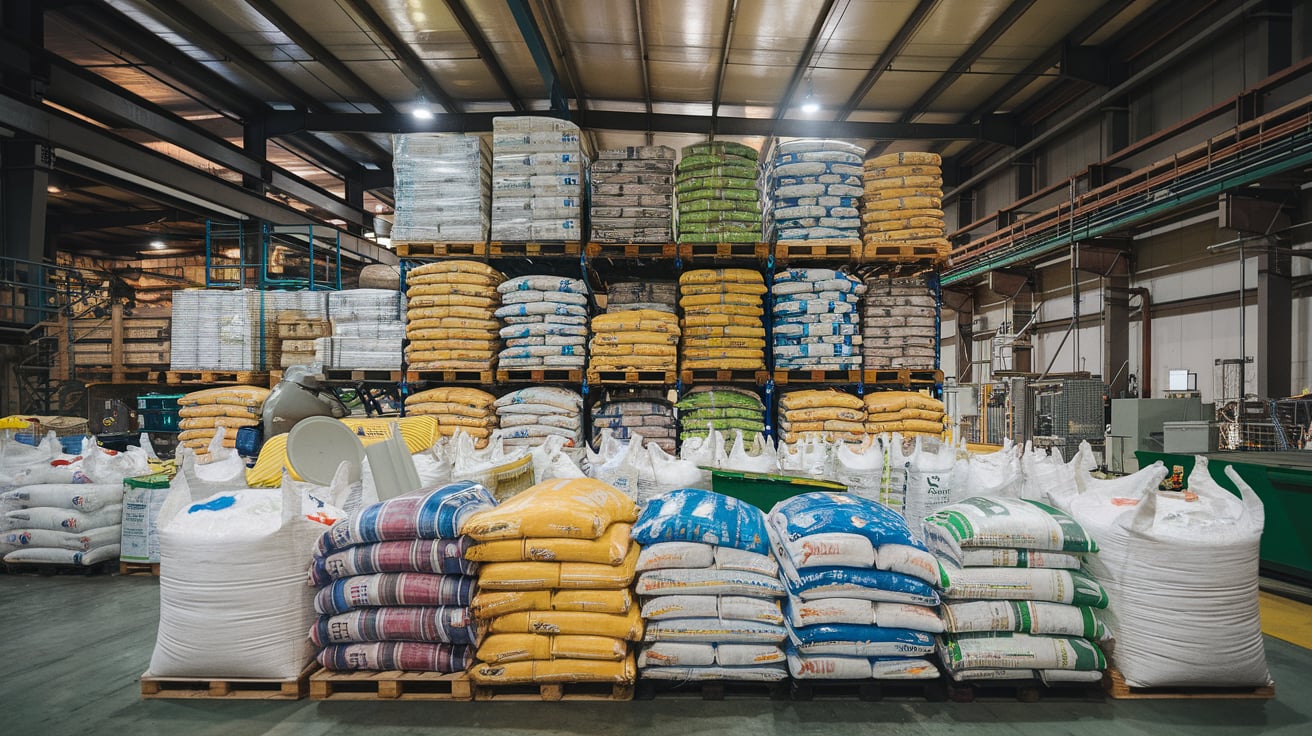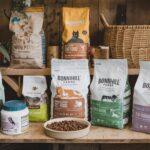In the ever-growing pet food industry, the role of pet food ingredient suppliers is crucial. They provide the essential building blocks that go into creating nutritious, high-quality, and safe food for pets. But what makes a reliable supplier, and how can pet food businesses ensure they’re working with the best in the field? In this comprehensive guide, we’ll explore the world of pet food ingredient suppliers, covering everything from sourcing raw materials to quality control, sustainability, and emerging trends.
Whether you’re a pet food manufacturer or simply a pet parent interested in the food your furry friends consume, this guide will provide valuable insights and actionable advice.
What Are Pet Food Ingredient Suppliers?
Pet food ingredient suppliers are businesses that provide the raw materials required to produce pet food. These ingredients range from proteins like chicken, lamb, and fish, to vegetables, grains, vitamins, and minerals. Suppliers can also offer specialized ingredients like probiotics, antioxidants, and omega fatty acids that are designed to promote pet health and well-being.
Types of Ingredients Supplied
- Proteins: Animal proteins (chicken, beef, turkey) and plant-based proteins (lentils, peas).
- Carbohydrates: Grains like rice, barley, oats, and alternative grains like quinoa.
- Fats and Oils: Animal fats (chicken fat, fish oil) and plant-based oils (flaxseed oil, coconut oil).
- Fiber: Fruits and vegetables (pumpkin, sweet potatoes), and synthetic fibers.
- Vitamins and Minerals: Essential micronutrients for the optimal health of pets.
Key Suppliers and Their Roles
Pet food manufacturers rely on several types of suppliers:
- Raw Material Suppliers: Provide bulk proteins, grains, and fats.
- Additive Suppliers: Offer flavor enhancers, preservatives, and nutrients.
- Packaging Suppliers: Ensure packaging is safe, sustainable, and functional.
- Technology Suppliers: Offer innovations in production techniques or ingredient enhancements.
Why Choosing the Right Supplier Matters
Choosing the right pet food ingredient supplier isn’t just about cost—it’s about ensuring your pets get the best possible nutrition. Here’s why this decision is so important:
1. Quality Control and Safety
Pet food ingredients must meet stringent safety and quality standards. Suppliers who prioritize food safety and traceability can reduce the risk of contamination and recalls. Suppliers should adhere to industry standards like AAFCO (Association of American Feed Control Officials) guidelines, and have certifications such as ISO 22000 for food safety management systems.
2. Nutritional Balance
Pets require specific nutritional formulations to stay healthy. Working with reputable suppliers ensures the proper nutritional balance in pet food. Suppliers must provide ingredients that meet the recommended daily allowance (RDA) for pets.
3. Transparency and Traceability
Modern consumers, including pet owners, are demanding more transparency when it comes to sourcing and production. Suppliers should provide clear documentation on the origin, processing methods, and handling of their ingredients, ensuring full traceability from farm to bowl.
How to Choose the Right Pet Food Ingredient Supplier
Selecting a supplier can be a daunting task for pet food manufacturers. Here are some factors to consider when choosing the right supplier:
1. Research Their Reputation
Do they have a track record of supplying quality ingredients? Look for suppliers with strong reputations, positive reviews, and case studies in the pet food industry. You can also check their membership in industry associations to gauge their professionalism.
2. Check Certifications
Certifications like Global Food Safety Initiative (GFSI), ISO 22000, or specific sustainability certifications (such as Fair Trade or Organic Certified) can give you confidence in a supplier’s commitment to quality and ethical practices.
3. Evaluate Sustainability Practices
As consumers become more environmentally conscious, sustainability has become a key factor in choosing a supplier. Look for suppliers who source ingredients responsibly, use eco-friendly packaging, and minimize waste throughout the supply chain.
4. Verify Their Testing Procedures
Top-tier pet food ingredient suppliers will have a robust quality assurance system in place. Ensure they perform regular tests on their ingredients for contaminants such as pesticides, heavy metals, and harmful bacteria.
5. Consider Supply Chain Reliability
The last thing you want is delays in production due to unreliable ingredient supply. Suppliers with a dependable supply chain, good inventory management, and the capacity to scale with your needs will support your business’s growth.
The Future of Pet Food Ingredient Suppliers: Trends to Watch
The pet food industry is evolving rapidly, and so are the demands on pet food ingredient suppliers. Here are a few trends to keep an eye on:
1. Plant-Based and Alternative Proteins
With the rise in popularity of plant-based diets for both humans and pets, ingredient suppliers are adapting by offering more plant-based proteins. Pea protein, lentils, and chickpeas are becoming popular alternatives to animal protein. Expect to see more suppliers providing high-quality, plant-based options.
2. Sustainability and Ethical Sourcing
Sustainability continues to be a hot topic in pet food manufacturing. Ingredient suppliers are increasingly focusing on sustainable farming practices, waste reduction, and transparent sourcing. Eco-friendly packaging and regenerative agriculture are expected to become more common.
3. Customization and Functional Ingredients
Pet food manufacturers are seeking more specialized ingredients that offer specific health benefits, such as improved digestion, skin health, and joint support. Suppliers who can offer functional ingredients like probiotics, omega-3 fatty acids, and antioxidants will be in high demand.
Frequently Asked Questions (FAQs)
1. What is the role of a pet food ingredient supplier?
A pet food ingredient supplier provides the raw materials used to manufacture pet food. This includes proteins, fats, carbohydrates, vitamins, and minerals essential for creating nutritionally balanced pet food.
2. How can I ensure the quality of pet food ingredients?
You should look for suppliers who comply with industry standards, have certifications, perform quality testing, and offer transparency in sourcing and processing.
3. Are there sustainable options available from pet food ingredient suppliers?
Yes, many suppliers are now offering sustainably sourced ingredients, including organic options, and using eco-friendly packaging. Sustainability is an important consideration when selecting a supplier.
4. Can pet food ingredient suppliers offer specialized ingredients?
Absolutely. Many suppliers provide specialized functional ingredients such as probiotics, joint health supplements, or ingredients that promote skin and coat health.
Conclusion
Choosing the right pet food ingredient supplier is critical for ensuring the health and well-being of the pets that consume the food. The best suppliers provide high-quality ingredients, are committed to safety and sustainability, and offer the ability to customize based on the unique nutritional needs of pets.
By thoroughly researching suppliers, prioritizing transparency and quality control, and keeping an eye on emerging trends, pet food manufacturers can stay ahead in this competitive and rapidly changing industry.











Scratch cards always feel like a little burst of optimism, don’t they? It’s fun imagining what you might win! I was checking out phfun games & their quick registration sounds perfect for a spontaneous bit of fun – instant access is key! ✨